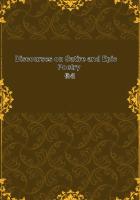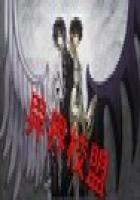Indeed, it is high time to prepare myself for death; to cast everything aside; to fast, and see to it that people bear me good-will."
"They will!" said Foma with confidence.
"If there were but a reason why they should.""And the lodging-house?"
Ignat looked at his son and began to laugh.
"Yakov has had time to tell it to you already! The old miser. He must have abused me?""A little." Foma smiled.
"Of course! Don't I know him?"
"He spoke of it as though it were his own money."Ignat leaned back in his chair and burst into still louder laughter.
"The old raven, eh? That's quite true. Whether it be his own money or mine, it is all the same to him. There he is trembling now. He has an aim in view, the bald-headed fellow. Can you tell me what it is?"Foma thought awhile and said:
"I don't know."
"Eh, you're stupid. He wants to tell our fortunes."How is that?"
"Come now, guess!"
Foma looked at his father and--guessed it. His face became gloomy, he slightly raised himself from the armchair and said resolutely:
"No, I don't want to. I shall not marry her!""Oh? Why so? She is a strong girl; she is not foolish; she's his only child.""And Taras? The lost one? But I--I don't want to at all!""The lost one is gone, consequently it is not worthwhile speaking of him. There is a will, dear, which says: 'All my movable and real estates shall go to my daughter, Lubov.' And as to the fact that she is your godfather's daughter, we'll set this right.""It is all the same," said Foma, firmly. "I shall not marry her!""Well, it is rather early to speak of it now! But why do you dislike her so much?"I do not like such as she is."
"So-o! Just think of it! And which women are more to your liking, sir, may I ask?""Those that are more simple. She's always busy with her Gymnasium students and with her books. She's become learned. She'll be laughing at my expense," said Foma, emotionally.
"That is quite true. She is too bold. But that is a trifle. All sorts of rust can be removed if you try to do it. That's a matter for the future. And your godfather is a clever old man. His was a peaceful, sedentary life; sitting in one place he gave a thought to everything. It is worthwhile listening to him, for he can see the wrong side of each and every worldly affair. He is our aristocrat--descending from Mother Yekaterina--ha, ha! He understands a great deal about himself. And as his stem was cut off by Taras, he decided to put you in Taras's place, do you see?""No, I'd rather select my place myself," said Foma, stubbornly.
"You are foolish as yet." Ignat smiled in reply to his son's words.
Their conversation was interrupted by the arrival of Aunt Anfisa.
"Foma! You've come," she cried out, somewhere behind the doors.
Foma rose and went to meet her, with a gentle smile.
Again his life streamed on slowly, calmly, monotonously. Again the Exchange and his father's instructions. Retaining a kindly sarcastic and encouraging tone in his relation toward his son, Ignat began to treat him more strictly. He censured him for each and every trifle and constantly reminded him that he brought him up freely; that he was never in his way and that he never beat him.
"Other fathers beat fellows like yourself with logs of wood. And I never even touched you with a finger.""Evidently I didn't deserve it," said Foma one day, calmly.
Ignat became angry at his son for these words and for the tone.
"Don't talk so much!" he roared. "You've picked up courage because of the softness of my hand. You find an answer to every word I say.
Beware; though my hand was soft, it can nevertheless still squeeze you so that tears will gush forth from your heels. You've grown up too soon, like a toad-stool, just sprung up from the ground. You have a bad smell already.""Why are you so angry at me?" asked Foma, perplexed and offended, when his father chanced to be in a happy frame of mind.
"Because you cannot tolerate it when your father grumbles at you.
You're ready to quarrel immediately."
"But it is offensive. I have not grown worse than I was before.
Don't I see how others live at my age?"
"Your head wouldn't fall off from my scolding you. And I scold you because I see there is something in you that is not mine. What it is, I do not know, but I see it is there. And that something is harmful to you."These words of Ignat made the son very thoughtful. Foma also felt something strange in himself, something which distinguished him from the youth of his age, but he, too, could not understand what it was. And he looked at himself with suspicion.
Foma liked to be on the Exchange amid the bustle and talk of the sedate people who were making deals amounting to thousands of roubles; the respect with which the less well-to-do tradesmen greeted and spoke to him--to Foma, the son of the millionaire--flattered him greatly. He felt happy and proud whenever he successfully managed some part of his father's business, assuming all responsibility on his own shoulders, and received a smile of approval from his father for it. There was in him a great deal of ambition, yearning to appear as a grown-up man of business, but--just as before his trip to Perm--he lived as in solitude; he still felt no longing for friends, although he now came in contact everyday with the merchants' sons of his age. They had invited him more than once to join them in their sprees, but he rather rudely and disdainfully declined their invitations and even laughed at them.
"I am afraid. Your fathers may learn of your sprees, and as they'll give you a drubbing, I might also come in for a share."What he did not like in them was that they were leading a dissipated and depraved life, without their fathers' knowledge, and that the money they were spending was either stolen from their parents or borrowed on long-termed promissory notes, to be paid with exorbitant interest.
They in turn did not like him for this very reserve and aversion, which contained the pride so offensive to them. He was timid about speaking to people older than himself, fearing lest he should appear in their eyes stupid and thick-headed.















